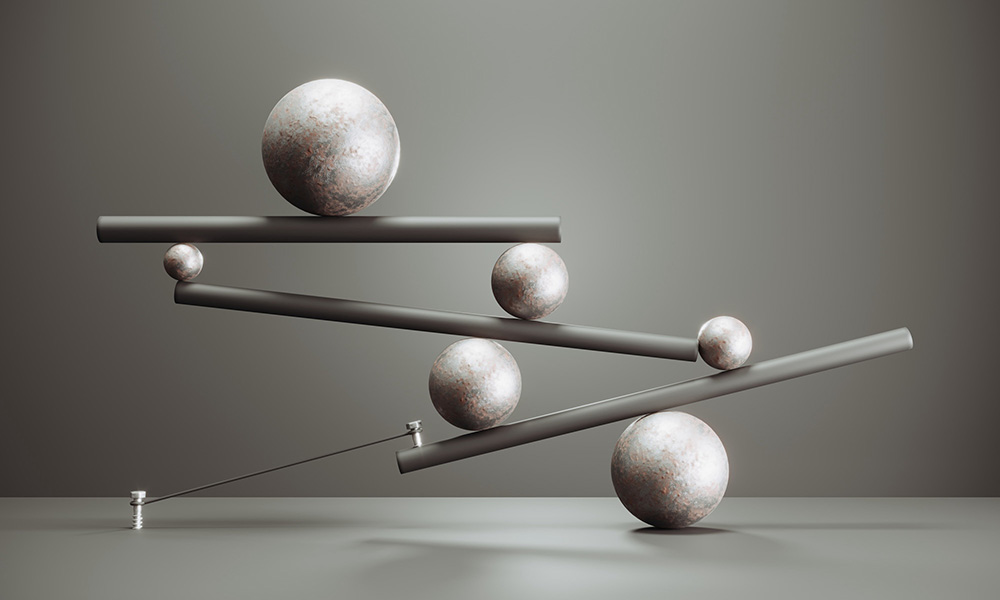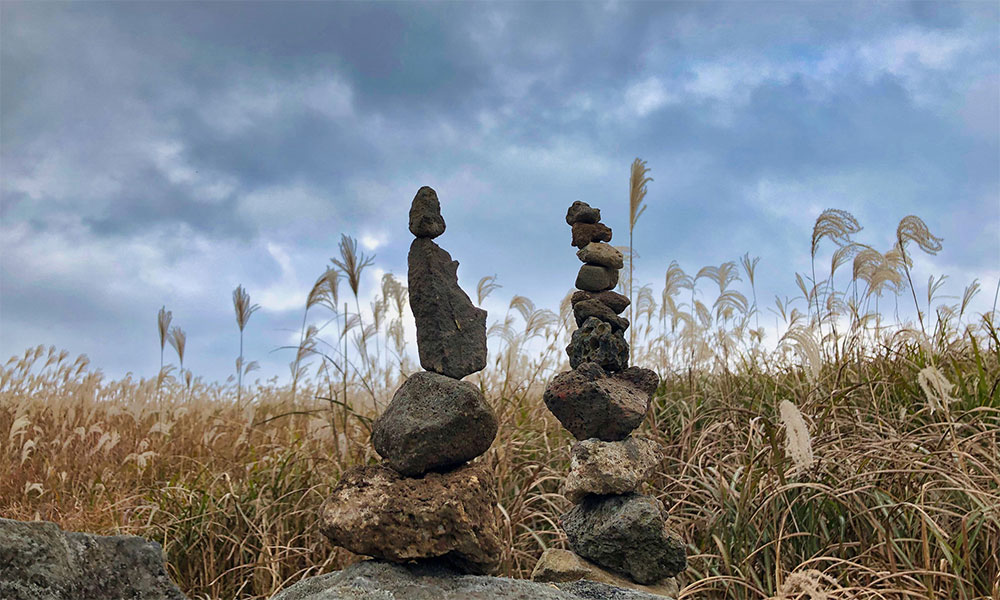Given how intense the last year has been, it’s important to now take the time to refuel yourself. While we are all hoping that the situation will be much better this year, things are likely to remain very challenging. Leaders need to make sure they have enough “gas in the tank” to lead their teams successfully through the continuing uncertainty.
In her article in the Harvard Business Review, Monique Valour notes that coping with ongoing challenges can leave you exhausted and unable to care for yourself (and others) properly. She describes this depletion in a very relatable way:
Imagine that you have an internal fuel tank and a gauge on your dashboard that lets you know how full it is. Some conditions cause your fuel to burn up quickly, just as extreme weather, rough terrain, carrying a heavy load, or accelerating and braking rapidly would use gas at a greater rate than normal on-the-road scenarios. To make sure you don’t run low on fuel, you want to reduce your exposure to difficult conditions, drive more efficiently, and make sure you refuel regularly.
At the height of the pandemic, leaders drained their personal resources unreservedly in service of their teams and organisations. You had to move forward at full throttle, while also carrying extra weight and navigating unfamiliar terrain. There was no time to slow down or make a pit stop.
What’s more, you also lost access to your usual outlets for relaxing and recharging. COVID restrictions made it difficult to meet up with friends and extended family, go out to eat and drink, travel, work out or even simply get out of the house. Without these avenues for regular renewal, leaders have become even more overwhelmed, with some verging on burnout.
Now that the crisis seems to be abating, it’s time to take a pause and bring some attention back to your own energy and wellbeing. So, this week, my message focuses on the importance of refuelling yourself. Why is it vital for leaders to take a time-out sooner rather than later? And how can you re-energise yourself effectively in the middle of a pandemic?
An extended crisis demands more of leaders
Sonya Shelton, CEO of Executive Leadership Coaching, highlights ‘crisis fatigue’ in her online workshop on recharging. Crisis fatigue sets in when a stressful incident becomes enduring or chronic – exactly like the COVID pandemic. Shelton outlines the four stages of leading through an extended crisis:
- Heroic phase: responding to immediate needs, sharing information and resources
- Honeymoon phase: drawing together to solve problems in an intense showing of community
- Disillusionment phase: dealing with delays, uncertainty, rebellion, COVID fatigue
- Reconstruction phase: plan to rebuild, people pull together again, recognise milestones
Depending on the region you work in, as well as the nature of your organisation and industry, you are probably in stage 3 or 4 right now – both of which require leadership to deliver in a steady, sustained manner. In the coming months, you will likely shift back and forth between these two phases as conditions continue to evolve.
The dangers of energy depletion
Your personal energy has four interlinked components: physical, mental, emotional and spiritual. When these resources aren’t replenished periodically, irritability and frustration arise, making you impatient when dealing with co-workers, family and friends. You may also experience feelings of loss and sadness, becoming prone to bouts of anxiety.
Sustained overwork also takes a toll on relationships, increases work-life conflict and leaves you emotionally undernourished. A sense of isolation sets in, making you feel run down – mentally as well as physically. Does any of this ring a bell?
Finally, there is the most obvious and visible impact – that on your physical health. As workloads shoot up, healthful practices like working out and mindfulness are put on the back burner. For most leaders, working from home actually led to longer hours, often stretching late into the night and disrupting sleep patterns.
You might think that pushing yourself relentlessly is the only way to help your team and organisation, but the fact is that leaders with a depleted gas tank simply can’t perform their jobs effectively. The loss of focus and clarity compromise your decision-making as well the ability to inspire your team members. In order to deliver your best, it’s essential to top up your energy reserves periodically.
It’s time to recharge yourself
While things at work might be better now, there are still many challenges on the horizon – and you need to be prepared for them. Consider these eight suggestions to combat exhaustion, replenish your energy and increase resilience for the coming year.
1. Recognise your emotions.
When you don’t make time to assess and acknowledge your state of mind, negative thoughts and feelings have free rein to deplete your personal energy. So, take a few moments out of your day to check in with yourself. How do you feel today? The simple act of naming your feelings puts you back in charge of your mental and emotional state – instead of letting it get hijacked by external stressors.
2. Prioritise yourself for a while.
Great leaders are respected for the way in which they support their team and make personal sacrifices in the interest of their organisation. Occasionally, though, you need to put yourself first. Give yourself permission to prioritise your own wellbeing for a while. Not only is this important for you as an individual but it will also make you a better leader in the long term.
3. Reduce the drain.
Start by tracking how you’re spending your time and energy, then identify the activities that drain you the most, so you can limit them as much as possible. If indulging in doomsday rants with a pessimistic colleague leaves you feeling stressed and tired, curb or eliminate such conversations.
Apply this suggestion to the personal sphere as well. If you find yourself frequently arguing with your partner about work timings, sit down together to create a mutually acceptable routine. If scrolling through social media is disrupting your sleep, set limits on your usage and implement a calming bedtime ritual.
4. Reconnect with people you miss.
Most of us have battled isolation in one form or another this past year. Some people have been home alone for months on end. Others have enjoyed more time with family but have felt disconnected from their teams, friends and broader networks. A wonderful way to nourish yourself emotionally is to reconnect with loved ones, close colleagues and industry peers. Make a list of the people you miss spending time with and commit to renewing at least two connections per week – on a phone call, via Zoom or in person if possible.
5. Identify your top fuels.
Everyone recharges differently. It’s important to find the fuels that work best for you and replenish your various energy reserves. Shelton recommends asking yourself the following questions:
- What is your favourite way to relax and refuel physical energy?
- What mindset do you want to maintain? What works best for you to rejuvenate your mental performance?
- How can you strengthen your emotional resilience? Where do you get your motivation and joy?
- What connects you to your spiritual energy? How can you have more empathy and compassion for yourself?
Jot down all the answers that come to mind. Then select the top 3-4 items that excite you the most and schedule them into your calendar.
6. Take a vacation.
Due to crisis mode at the workplace, combined with travel restrictions, many leaders haven’t taken a real break for a year (or more). Which means it’s high time to plan a vacation. Getting away from business is key to rejuvenating and unlocking fresh reserves of energy.
Even if the pandemic makes it tough to leave the city or you don’t feel comfortable travelling yet, you can always schedule a vacation at home. That means taking leave from work, switching off your work devices and spending time doing things you enjoy with people you love. You deserve it – and so does your family.
7. Practice gratitude.
Another way to boost your emotional reserves is through the practice of gratitude. Studies have shown that people who record what they are grateful for enjoy better physical health, more positive emotions, greater resilience and better sleep. Gratitude journaling helps you reap these benefits on an ongoing basis. Take out just a few minutes every night to write down three things you’re grateful for today – at work, at home and in the world.
8. Reconnect with your values.
Not only is purpose is one of the most effective ways to combat burnout, it is also the key to navigating complex and volatile situations. Reflect on how your work over the previous and upcoming year connects with your sense of purpose. Think about this in terms of your personal values, the broader mission of your organisation, and the stakeholders you serve. Valour suggests finding a tangible anchor that represents your values and placing it somewhere you can see it often.
It’s been a tough year, one that pushed many leaders to the limits of their endurance. With the crisis shifting into a lower gear, now is the time to refuel and reinvigorate yourself. In the end, let me leave you with Thiran’s words, which resonated deeply with me:
It’s about striking a balance. The reason our time is precious is because it’s never guaranteed, which is why we should regularly use some of it to purely enjoy this gift of life that we have, and to appreciate all the things and the people that make life such a treasured privilege.








Comments